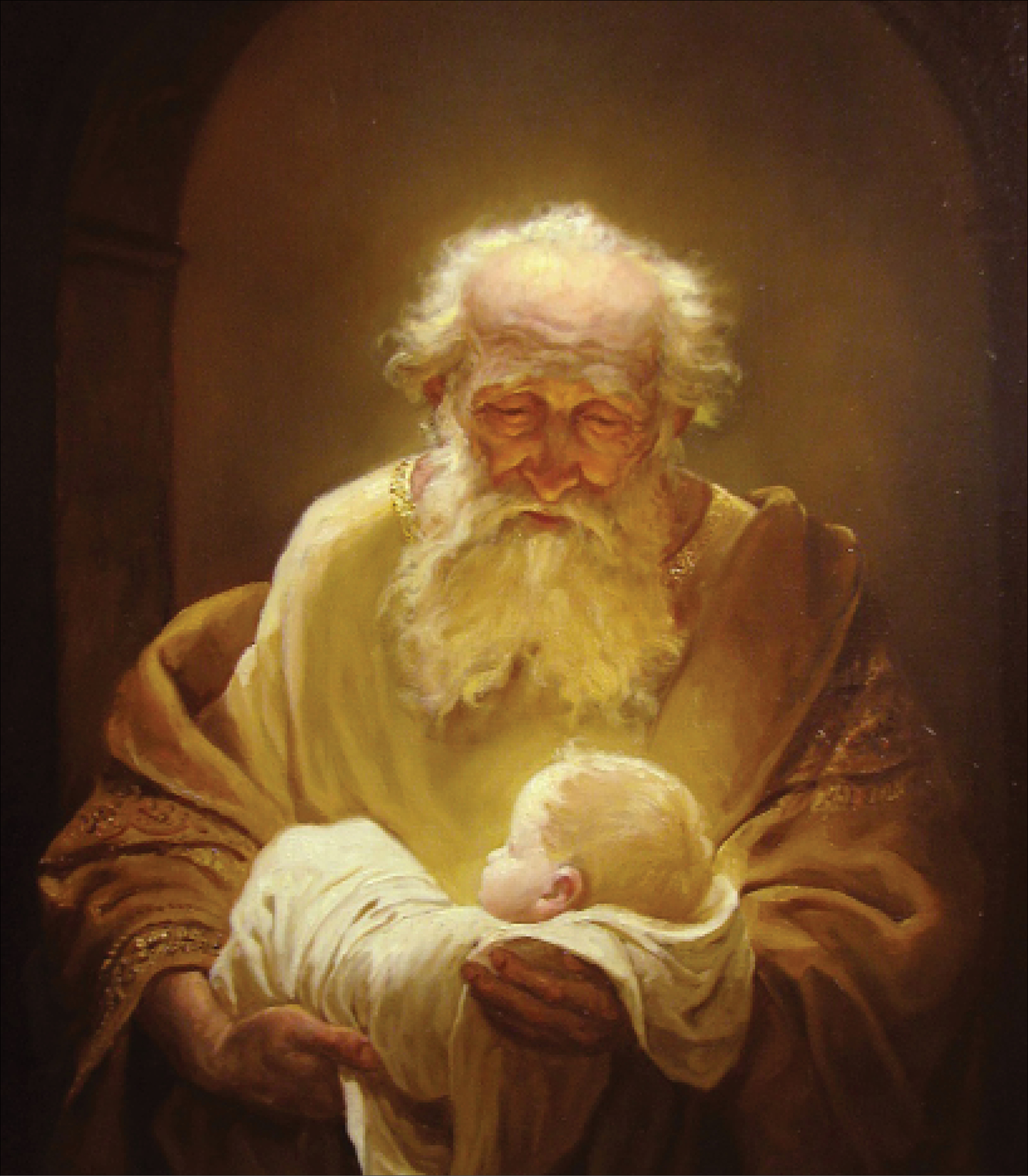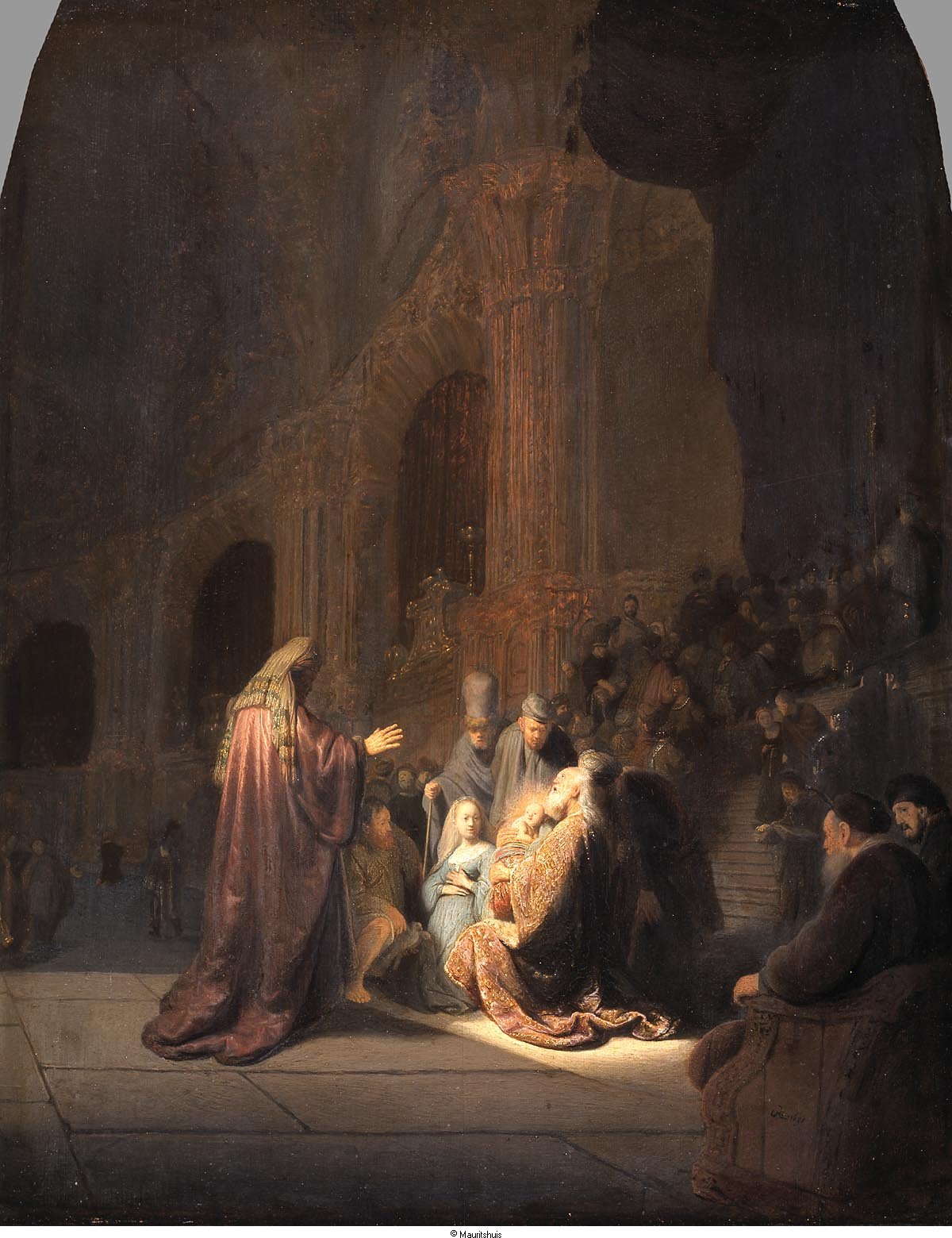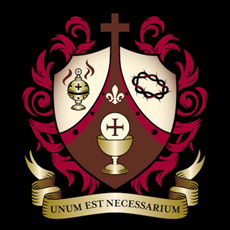Lumen Ad Revelationem Gentium - A Reflection on Candlemas
- Blog Lumen Ad Revelationem Gentium - A Reflection on Candlemas
The LORD said to Moses:
Tell the Israelites: When a woman has a child, giving birth to a boy, she shall be unclean for seven days... and then she shall spend thirty-three days more in a state of blood purity; she shall not touch anything sacred nor enter the sanctuary till the days of her purification are fulfilled. ... When the days of her purification for a son or for a daughter are fulfilled, she shall bring to the priest at the entrance of the tent of meeting a yearling lamb for a burnt offering and a pigeon or a turtledove for a purification offering.... If, however, she cannot afford a lamb, she may take two turtledoves or two pigeons, the one for a burnt offering and the other for a purification offering. The priest shall make atonement for her, and thus she will again be clean.
-- Leviticus 12: 1-4, 6, 8
***
When the days were completed for their purification according to the law of Moses, they took him up to Jerusalem to present him to the Lord, just as it is written in the law of the Lord, “Every male that opens the womb shall be consecrated to the Lord,” and to offer the sacrifice of “a pair of turtledoves or two young pigeons,” in accordance with the dictate in the law of the Lord.
-- Luke 2:22-24
Behold the Handmaid of the Lord
Tota pulchra es, Maria.
Et macula originalis non est in Te.You are all beautiful, Mary,
and the original stain [spot] (of sin) is not in you.--first lines of a 4th century prayer
The Blessed Virgin Mary was born immaculate, her soul completely spotless. Sin had not touched her.
So, as Dom Prosper Gueranger asks in his entry on today's feast, The Purification of the Blessed Virgin,
"Mary was a Daughter of Israel — she had given Birth to Jesus — He was her First-born Son.
"Could such a Mother, and such a Son, be included in the Laws we have just quoted?
"Was it becoming that Mary should observe them?"
Good question.
How can the purest creature in all of creation be further purified?
Dom Gueranger goes on,
"If she considered the spirit of these legal enactments, and why God required the ceremony of Purification, it was evident that she was not bound to them. They, for whom these Laws had been made, were espoused to men; — Mary was the chaste Spouse of the Holy Ghost, a Virgin in conceiving, and a Virgin in giving Birth to, her Son; her purity had ever been spotless as that of the Angels — but it received an incalculable increase by her carrying the God of all sanctity in her womb, and bringing him into this world. Moreover, when she reflected upon her Child being the Creator and sovereign Lord of all things — how could she suppose that he was to be submitted to the humiliation of being ransomed as a slave, whose life and person are not his own?
"And yet, the Holy Spirit revealed to Mary, that she must comply with both these Laws. She, the holy Mother of God, must go to the Temple like other Hebrew mothers, as though she had lost a something which needed restoring by a legal sacrifice. He, that is the Son of God and Son of Man, must be treated in all thing’s as though, he were a Servant, and be ransomed in common with the poorest Jewish boy. Mary adores the will of God, and embraces it with her whole heart."
This is what we celebrate today.
Obedience.
Trust in the will of God over our own puny capacity to understand His plan.
Surrender.
"The same Divine plan — which had required that Mary should be espoused to Joseph, in order that her fruitful Virginity might not seem strange in the eyes of the people — now obliged her to come, like other Israelite mothers, to offer the sacrifice of Purification, for the Birth of the Son, whom she had conceived by the operation of the power of the Holy Ghost, but who was to be presented in the Temple as the Son of Mary, the Spouse of Joseph. Thus it is, that Infinite Wisdom delights in showing that his thoughts are not our thoughts, and in disconcerting our notions; he claims the submissiveness of our confidence, until the time come that he has fixed for withdrawing the veil, and showing himself to our astonished view.
"The Divine Will was dear to Mary in this as in every circumstance of her life. The Holy Virgin knew, that by seeking this external rite of Purification, she was in no wise risking the honour of her Child, or failing in the respect due to her own Virginity. She was in the Temple of Jerusalem what she was in the house of Nazareth, when she received the Archangel’s visit — she was the Handmaid of the Lord. (Luke 1:38) She obeyed the Law, because she seemed to come under the Law. Her God and her Son submitted to the ransom as humbly as the poorest Hebrew would have to do; he had already obeyed the edict of the emperor Augustus, in the general census; he was to be obedient even unto death, even to the death of the Cross. The Mother and the Child, both humbled themselves in the Purification, and man’s pride received, on that day, one of the greatest lessons ever given it."
--February 2 – The Purification of the Blessed Virgin, The Liturgical Year, Dom Prosper Gueranger
It doesn't matter what it looked like to the rest of the world. Mary knew who she was and she knew what she was about.
She was the handmaid of the Lord, and her will was His.
A Light to the Revelation of the Gentiles
What can be more awe-inspiring than God introducing His Son to the world?
Of course, it is fitting that after this sublime act, those present exhibit a suitable amount of awe.
Enter Simeon.

Now there was a man in Jerusalem whose name was Simeon. This man was righteous and devout, awaiting the consolation of Israel, and the holy Spirit was upon him. It had been revealed to him by the holy Spirit that he should not see death before he had seen the Messiah of the Lord.
He came in the Spirit into the temple; and when the parents brought in the child Jesus to perform the custom of the law in regard to him, he took him into his arms and blessed God, saying:
“Now, Master, you may let your servant go in peace, according to your word,
for my eyes have seen your salvation,
which you prepared in sight of all the peoples,
a light for revelation to the Gentiles,
and glory for your people Israel.”
--Luke 2:25-32
The priest blesses candles with a special five-part blessing, particular to this feast. But why candles? Dom Prosper explains:
According to St. Ivo of Chartres, the wax—which is formed from the juice of flowers by the bee (which has always been considered as the emblem of virginity)—signifies the virginal flesh of the Divine Infant, who diminished not, either by his conception or his birth, the spotless purity of his Blessed Mother. The same holy Bishop would have us see, in the flame of our Candle, a symbol of Jesus, who came to enlighten our darkness. St. Anselm, Archbishop of Canterbury, speaking on the same mystery, bids us consider three things in the blessed Candle: the Wax, the Wick, and the Flame. The Wax, he says, which is the production of the virginal bee, is the Flesh of our Lord; the Wick, which is within, is his Soul; the Flame, which burns on the top, is his Divinity.
After the blessing, the candles are distributed to members of the faithful:
These five Prayers having been said, the Celebrant sprinkles the Candles with holy water (saying the Asperges in secret), and then incenses them; after which, he distributes them to both clergy and Laity (in receiving the Candle, the Faithful should kiss first the Candle itself, and then the Priest’s hand). During the distribution, the Church—filled with emotion at the sight of these sacred symbols, which remind her of Jesus—shares in the joyous transports of the aged Simeon, who, while holding the Child in his arms, confessed him to be the Light of the Gentiles. She chants his sweet Canticle, separating each verse by an Antiphon, which is formed out of the last words of Simeon.
These candles remind us that Jesus is THE light to the revelation of the Gentiles. The Canticle of Simeon is often sung during the distribution, like this version by Palestrina, and it hammers the message home.
|
Ant. Lumen ad revelationem gentium, et gloriam plebis tuæ Israel. |
Ant. A Light to the revelation of the Gentiles, and the glory of thy people Israel. |
| Canticle of Simeon (St. Luke, II) |
|
|
Nunc dimittis servum tuum, Domine: * secundum verbum tuum in pace. |
Now thou dost dismiss thy servant, O Lord, according to thy word in peace. |
|
Ant. Lumen ad revelationem gentium, et gloriam plebis tuæ Israel. |
Ant. A Light to the revelation of the Gentiles, and the glory of thy people Israel. |
|
Quia viderunt oculi mei: * Salutare tuum. |
Because my eyes have seen thy Salvation. |
|
Ant. Lumen ad revelationem gentium, et gloriam plebis tuæ Israel. |
Ant. A Light to the revelation of the Gentiles, and the glory of thy people Israel. |
|
Quod parasti: * ante faciem omnium populorum. |
Which thou hast prepared before the face of all peoples. |
|
Ant. Lumen ad revelationem gentium, et gloriam plebis tuæ Israel. |
Ant. A Light to the revelation of the Gentiles, and the glory of thy people Israel. |
|
Gloria Patri et Filio, * et Spiritui Sancto. |
Glory be to the Father, and to the Son, and to the Holy Ghost. |
|
Ant. Lumen ad revelationem gentium, et gloriam plebis tuæ Israel. |
Ant. A Light to the revelation of the Gentiles, and the glory of thy people Israel. |
|
Sicut erat in principio, et nunt et semper, * et in sæcula sæculorum. Amen. |
As it was in the beginning, is now, and ever shall be, world without end. Amen. |
|
Ant. Lumen ad revelationem gentium, et gloriam plebis tuæ Israel. |
Ant. A Light to the revelation of the Gentiles, and the glory of thy people Israel. |
Dom Prosper's note on this part of the Mass is particularly resonant during these times:
Formerly, the Faithful looked upon it as an honour to be permited to bring their wax tapers to the Church, on this Feast of the Purification, that they might be blessed together with those, which were to be borne in the procession by the Priests and sacred Ministers; and the same custom is still observed in some congregations. It would be well if Pastors were to encourage this practice, retaining it where it exists, or establishing it where it is not known. There has been such a systematic effort made to destroy, or, at least, to impoverish the exterior rites and practices of religion, that we find, throughout the world, thousands of Christians who have been insensibly made strangers to those admirable sentiments of faith, which the Church alone, in her Liturgy, can give to the body of the Faithful. Thus, we shall be telling many what they have never heard before, when we inform them, that the Church blesses the Candles to-day, not only to be carried in the Procession, which forms part of the ceremony, but, also, for the use of the Faithful, inasmuch as they draw, upon such as use them with respect, whether on sea or on land, (as the Church says in the Prayer,) special blessings from heaven. These blest Candles ought, also, to be lit near the bed of the dying Christian, as a symbol of the immortality merited for us by Christ, and of the protection of our Blessed Lady.
Christ was the greatest gift given to mankind, and His mother a close second.
St Bernard of Clairvaux says of this magnificent occasion:
“On this day, the Virgin Mother brings the Lord of the Temple into the Temple of the Lord;
Joseph presents to the Lord a Son, who is not his own, but the Beloved Son of that Lord himself, and in whom he is well pleased;
Simeon, the just man, confesses Him for whom he had been so long waiting;
Anna, too, the widow, confesses him.
The Procession of this solemnity was first made by these four, which, afterwards, was to be made, to the joy of the whole earth, in every place and by every nation.
Let us not be surprised at its then being so little for He that carried was Little! Besides, all who were in it were just, and Saints, and perfect—there was not a single sinner.”
It is feasts like the one we celebrate today that encourage us to strive for holiness, to be among this sacred entourage.
As the Antiphon for the procession with follows says,
Adorn thy bridechamber, O Sion, and receive Christ, thy King. Salute Mary, the gate of heaven; for she beareth the King of glory, who is the new Light. The Virgin stands, bringing in her hands her Son, the Begotten before the day-star; whom Simeon receiving into his arms, declared him to the people as the Lord of life and death, and the Savior of the world.
As Dom Prosper says, "The salvation of the world has this day gained ground; let the work of our individual sanctification also advance."
Amen.

Images: Photo courtesy of The Faithful Traveler, LLC (used with permission); Simeon and Jesus, by Andrey Shishkin (used with permission of the artist); Simeon's Song of Praise, Rembrandt van Rijn (public domain)
All quotations taken from The Liturgical Year by Dom Prosper Gueranger, in the public domain
Related Content




Comments